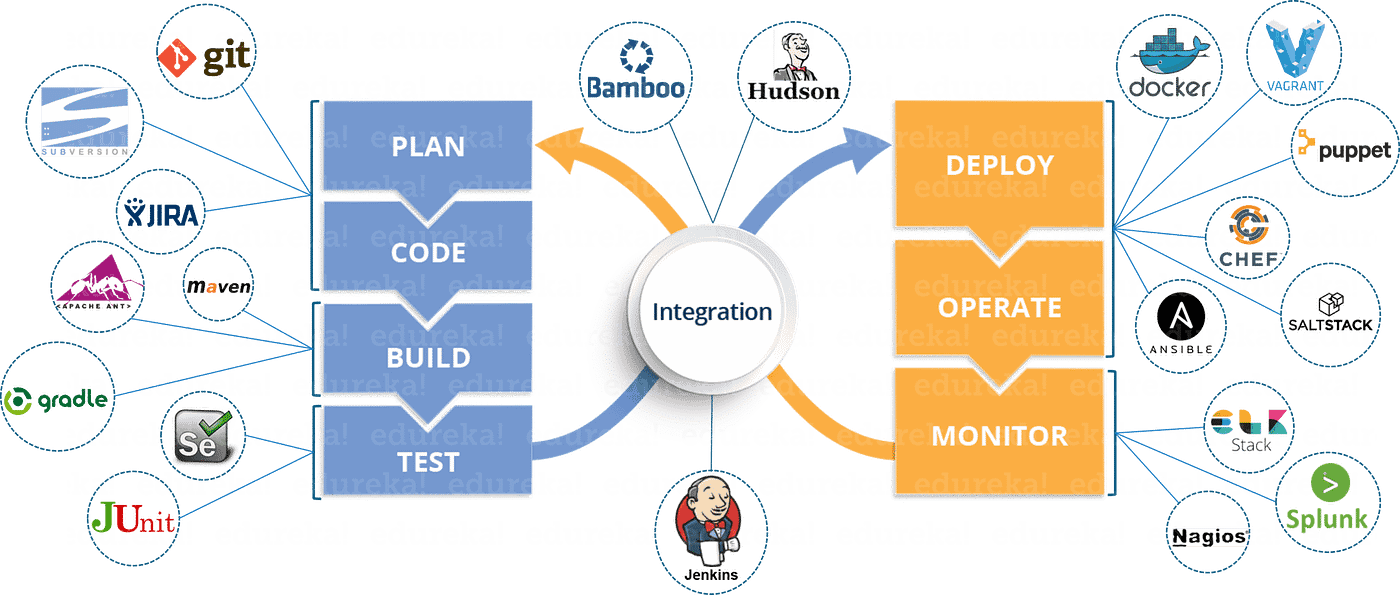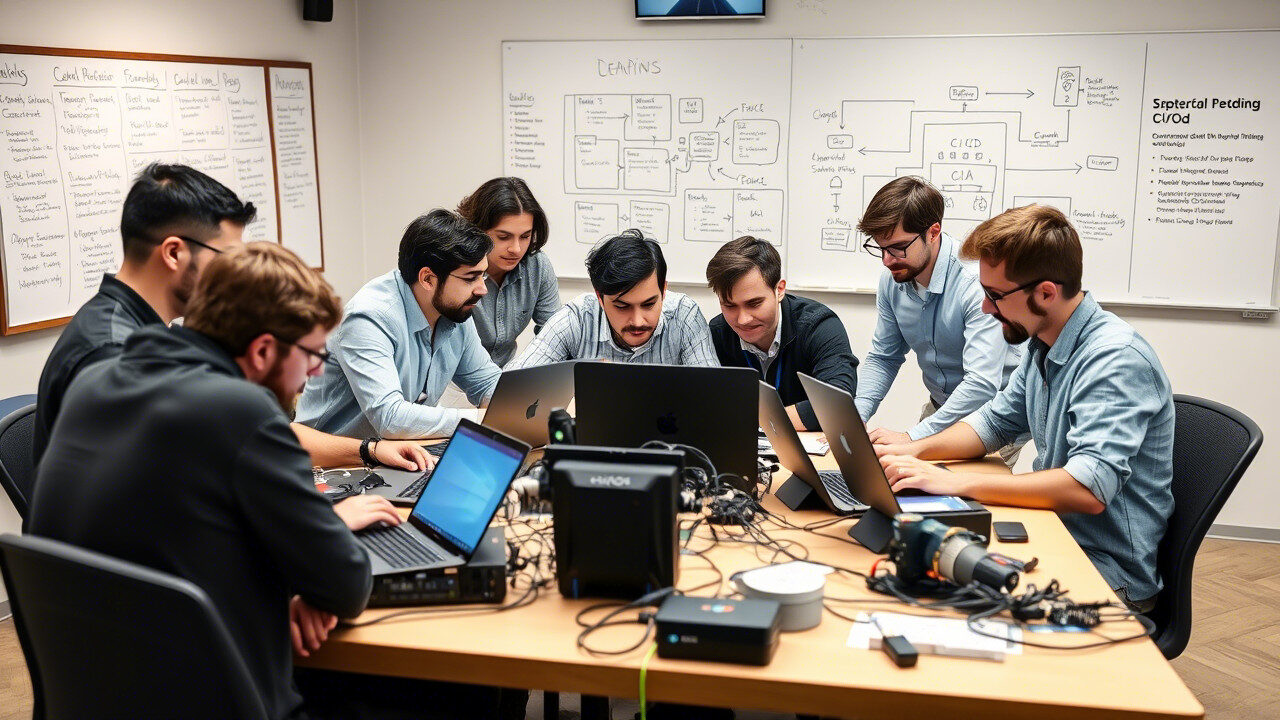GitHub Copilot is an exceptional inch in the manner in which developers algorithm their code by suggesting things scantly within the activities but completing work with great efficiency. Like all others, it also sometimes creates a problem in wanting to judiciously fit in the pre-existing related development environment. When coupling with DevOps tools, such as Jira, Jenkins, or any of the automation tools available in workflow management, the most common case scenario has been Copilot engaging its unwillingness to either communicate or synchronize with these other apps. Result: Late task tracking or less than convenient workflows.
This article will assist you in discovering the most common problem scenarios experienced using DevOps tools and resolution of seamless integration between Copilot and other related tools such as Jira, Jenkins, etc. Following this guide can help you streamline your software pipeline as well as increase productivity.

🔍 Understanding the Integration Issues with DevOps Tools
Before diving into solutions, let’s first understand the common DevOps tool issues that prevent smooth integration with GitHub Copilot:
- Inconsistent Authentication: Copilot may not have the necessary permissions to access certain DevOps tools like Jira or Jenkins.
- Misconfigured Webhooks: Webhooks that connect Copilot to your CI/CD tools might be misconfigured, suitable to workflow automation problems.
- Missing APIs: Copilot may not recognize or integrate with certain tools due to missing or incompatible APIs.
- Task Tracking Sync Issues: If your Jira tasks or Jenkins builds aren’t properly synced, Copilot might fail to pull relevant context for code suggestions.
- Version Conflicts: Different versions of DevOps tools or Copilot plugins can cause incompatibilities, suitable to integration failure.
Once you identify the root cause, you can follow the steps below to resolve the integration issues.
🧩 Step 1: Check Authentication and Permissions
One of the most common reasons Copilot doesn’t work seamlessly with DevOps tools like Jira or Jenkins is authentication issues. Ensure that both your Copilot and DevOps tool accounts have the proper permissions to communicate with each other.
- Jira: Make sure that Copilot has access to the Jira project board and can read/write to the relevant issues.
- Jenkins: Ensure that the Jenkins build triggers are enabled and accessible by Copilot. This may require API tokens or service account credentials.
✅ Action: Check your API access tokens, user roles, and permission settings in Jira and Jenkins.
🧩 Step 2: Configure Webhooks for Workflow Automation
Webhooks are essential for connecting DevOps tools like Jira and Jenkins to your CI/CD pipeline. If the webhooks aren’t set up properly, Copilot may fail to trigger or retrieve information from these tools.
For example, when a task in Jira is marked as complete, it should trigger Jenkins to initiate a build or deploy a new version. Copilot relies on these webhooks to suggest the right code or commands based on the context of the task at hand.
✅ Action: Review webhook configurations in Jira and Jenkins, making sure they are correctly pointing to the respective Copilot integration points.
🧩 Step 3: Integrate with APIs for Task Tracking
Task tracking is central to efficient DevOps workflows, and tools like Jira track the status of issues, sprints, and builds. Copilot needs to be able to pull real-time updates from these tools to provide relevant code suggestions.
- Jira: Ensure that the Jira API is accessible and configured for integration with Copilot. If there are custom fields or specific issue types, make sure they are correctly mapped.
- Jenkins: Integrate Jenkins APIs for real-time build tracking. Copilot needs this information to provide timely code suggestions based on the current build status.
✅ Action: Enable API access for Jira and Jenkins, and make sure Copilot is pulling the latest task information from these tools.
🧩 Step 4: Ensure Consistency Across Tool Versions
Integrations can suffer from problems introduced by version mismatches. This is more true for Jenkins plugins and Jira integrations, both of which evolve rapidly with frequent updates, and for Copilot itself. As integration usually requires that compatible versions of all components be used, a thorough check should be made to ensure that Jira, Jenkins, and Copilot are in fact using compatible versions.
✅ Action: Check the version compatibility for the following:
- Copilot plugin version
- Jenkins plugin version
- Jira integration version
- CI/CD pipeline configurations
If there are discrepancies, update the tools to the latest compatible versions to ensure smooth integration.
🧩 Step 5: Test Workflow Automation
Once the configuration is complete, test the entire workflow to verify that task tracking, build triggers, and code suggestions are all working together.
For example:
- Update a Jira issue status to “In Progress.”
- Copilot should pull this status and suggest relevant code to support the task.
- Once the task is marked “Complete,” Copilot should prompt you with build commands or deployment steps via Jenkins.
🧩 Step 6: Leverage CI/CD Tools for Continuous Integration
Continuous integration is essential for streamlining DevOps processes, and GitHub Copilot plays a crucial role in assisting developers throughout the pipeline. Copilot can help ensure that the latest code changes are integrated smoothly by providing real-time feedback during development.
- Jenkins: Configure Jenkins to trigger automated tests or deployment based on code changes suggested by Copilot.
- Jira: Set up Jira to track and report progress on issues associated with the code changes made by Copilot suggestions.
By automating repetitive tasks through workflow automation, Copilot can offer better, more context-aware code suggestions.
Final Thoughts

Toolchain-related issues for DevOps warrant a systematic approach to ensure all tools considered are integrated and configured. The most important areas that need to be focused on are authentication, webhooks, APIs, version consistency, and workflow automation, all of which ensure that Copilot gives relevant code recommendations based on context. Following the steps above will help you connect Copilot to your DevOps tools and thus refine your development workflows.
Why TechNow Is the suitable IT Support Service Agency in Germany
TechNow offers the suitable IT support services in Germany on account of its efficiency in managing the DevOps tool issues and seamlessly integrating anything with platforms such as Jira, Jenkins, and Copilot. Our experts streamline tight CI/CD workflows, configure stubborn task tracking systems, and apply workflow automation solutions to boost productivity and reduce bottlenecks. Whether on integration issues with DevOps tools or on automating complex workflows, TechNow’s IT support can help develop efficient and scalable solutions. Partner with us to improve your DevOps processes and speed up your software development lifecycle.



